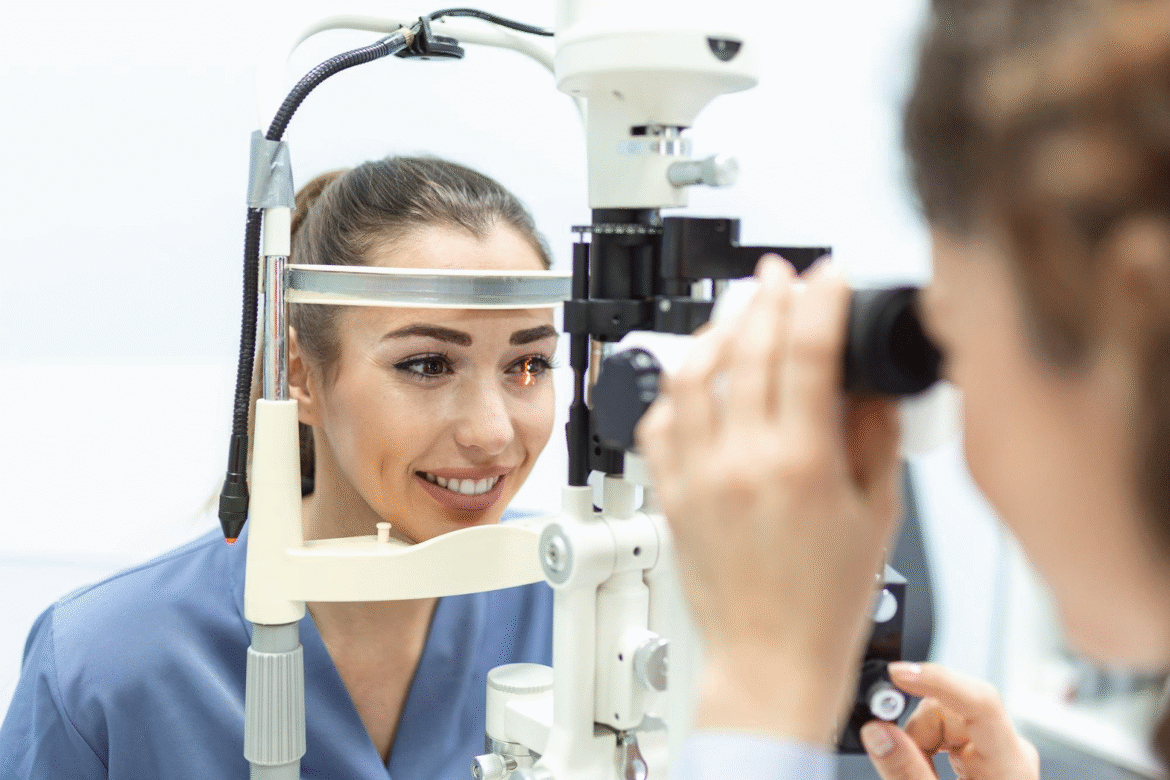Eye health is closely linked to overall well-being; however, it is often neglected until problems become severe. With modern lifestyles involving prolonged screen time, environmental pollution, and age-related changes, eye conditions are becoming increasingly common. Mumbai, one of India’s busiest metropolitan cities, has developed into a strong centre for healthcare, particularly in ophthalmology. Here, patients can consult specialists who provide guidance on both routine and complex eye problems.
Importance of Eye Care
Good vision is vital for daily life, from education to independence. Regular consultations with an eye specialist in Mumbai help detect cataracts, glaucoma, and retinal issues early. Children need check-ups to support learning, adults face strain from screens, and older people are prone to age-related conditions. Timely intervention reduces complications and improves quality of life. Preventive care ensures healthier eyesight for the future.
Key Areas of Ophthalmology
Ophthalmology covers a wide range of treatments, addressing concerns for people of all ages. Some of the main areas that specialists focus on include:
- Cataract Management: Removal of cloudy eye lenses and replacement with artificial ones to restore vision.
- Retinal Care: Managing diabetic eye disease, macular degeneration, and retinal tears or detachment.
- Paediatric Ophthalmology: Treatment of vision problems in children, including squint correction and congenital conditions.
- Glaucoma Management: Detecting and managing high eye pressure to prevent optic nerve damage.
These areas reflect how ophthalmology extends beyond correcting refractive errors and addresses complex medical challenges. Specialists in Mumbai apply their expertise across these fields to provide well-rounded care.
Infrastructure and Facilities
Specialist expertise is most effective when supported by a strong medical infrastructure. Hospitals in Mumbai provide facilities such as:
- Advanced Imaging Tools: Optical coherence tomography (OCT), retinal photography, and ultrasound biomicroscopy.
- Laser Technology: Used for treating conditions such as diabetic retinopathy and glaucoma.
- Microsurgical Equipment: Enables precise cataract and retinal surgeries with minimal invasion.
- Dedicated Eye Units: Many hospitals offer specialised ophthalmology wings that handle both emergency and planned procedures.
These facilities help doctors make accurate diagnoses and carry out safe, effective treatments. Strong nursing care, rehabilitation services, and access to other departments such as endocrinology also add value, especially in cases where eye conditions are linked to systemic diseases like diabetes.
Preventive Eye Care
Preventive steps are critical in protecting vision. Specialists in Mumbai often stress the importance of:
- Routine eye examinations, particularly for children and older adults.
- Regular screenings for people with diabetes, hypertension, or a family history of eye disease.
- Lifestyle practices such as eating foods rich in vitamins A, C, and E to support eye health.
- Occupational safety measures, including protective eyewear for those exposed to dust, chemicals, or bright light.
- Limiting excessive screen time and following the 20-20-20 rule: looking at something 20 feet away for 20 seconds every 20 minutes.
By combining medical check-ups with simple lifestyle measures, patients can significantly reduce their risk of serious eye problems. Preventive care not only safeguards vision but also reduces the need for complex surgical interventions later in life.
Why Mumbai is a Hub for Eye Care
Mumbai is considered a hub for healthcare, and ophthalmology is one of its strongest fields. Several factors contribute to this reputation:
- Availability of Expertise: The city is home to specialists covering different sub-fields of ophthalmology.
- Infrastructure: Hospitals provide advanced diagnostic and surgical technology to support treatment.
- Multidisciplinary Approach: Collaboration with other medical departments ensures holistic care for patients with conditions linked to overall health.
- Accessibility: Mumbai attracts patients from across India and abroad due to its healthcare facilities and transport connections.
- Awareness Initiatives: Campaigns and school-based screening programmes in the city increase awareness about the importance of eye care.
These factors explain why many patients choose Mumbai for both preventive and advanced vision care.
Choosing an Eye Specialist
Selecting the right eye specialist in Mumbai requires considering several factors. Patients often look at:
- The doctor’s training and qualifications.
- Years of practice and area of focus.
- Availability of diagnostic and treatment facilities.
- Recommendations from healthcare professionals or patient reviews.
By weighing these factors, patients can make informed choices about their care.
Conclusion
Mumbai offers a strong healthcare infrastructure and experienced ophthalmologists who support patients across different age groups. Consultants such as Dr. Nikhil S. Sardar, Dr. Seema Behl, Dr. Neepa T. Dave, and Dr. Himanshu R. Mehta demonstrate the expertise available in vision care. Through regular check-ups, preventive steps, and timely treatment, patients can manage their eye health effectively and maintain good vision for the future.
